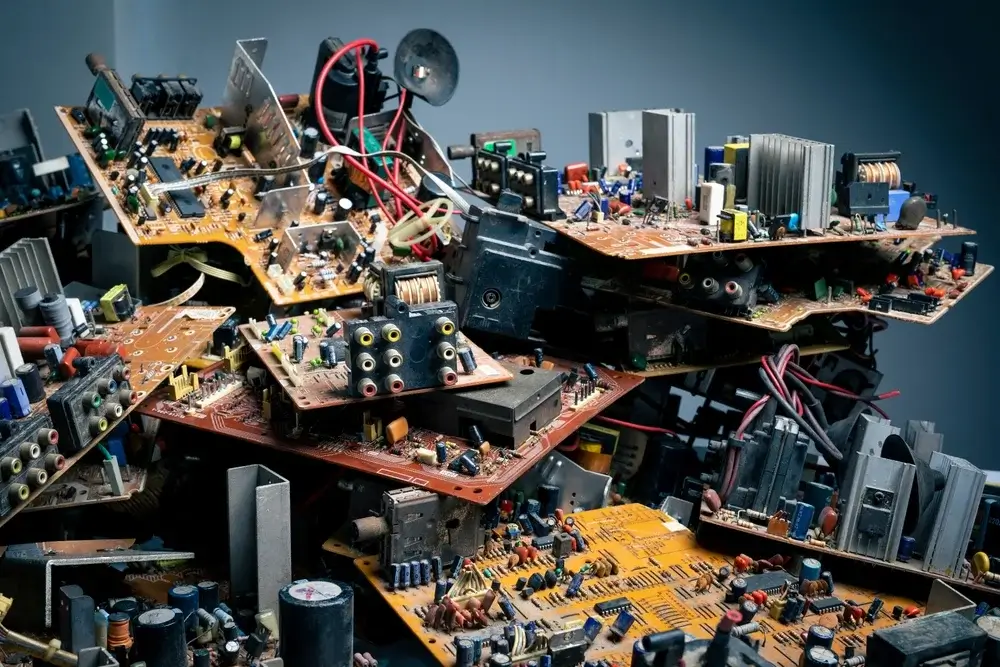Introduction
Computer Disposal Services Organisations frequently upgrade their IT infrastructure, leading to the accumulation of obsolete electronics. Improper disposal of these devices poses serious risks to both data security and the environment. Computer disposal services offer structured solutions to tackle these concerns by ensuring data destruction compliance and promoting environmentally friendly IT disposal. This article dives deep into the importance of such services, industry best practices, and emerging trends that make the disposal process both safe and sustainable.
The Importance of Proper Computer Disposal
Data Security Concerns in Computer Disposal
Even after deleting files or formatting drives, data can often be recovered. Failing to properly destroy data could lead to identity theft, data breaches, or corporate espionage.
Risks of Improper Data Disposal
- Exposure of sensitive customer or employee data
- Violation of data protection regulations like GDPR or HIPAA
- Financial and reputational damage to businesses
Methods for Secure Data Destruction
- Degaussing: Erases data using high-powered magnets
- Shredding: Physically destroys hard drives
- Overwriting: Replaces data with random information
- Certified data destruction services ensure every step complies with legal standards.
Environmental Impact of Electronic Waste (E-Waste)
Electronic waste contains toxic substances such as lead, mercury, and cadmium, which can contaminate soil and water.
Hazards of E-Waste in Landfills
- Release of hazardous chemicals
- Soil and water pollution
- Long-term effects on ecosystems and human health
Benefits of Recycling Computers
- Recovery of valuable materials like gold, copper, and aluminum
- Reduction in mining and resource extraction
- Decrease in carbon footprint
- Encouragement of sustainable electronics disposal
Understanding Computer Disposal Services
What Are Computer Disposal Services?
These are professional services designed to manage the end-of-life process of IT equipment. They provide secure and compliant ways to dispose of outdated electronics through IT asset disposition (ITAD), certified electronics recycling, and data destruction protocols.
Key Features of Reputable Disposal Services
Compliance with Data Protection Regulations
Providers should offer documentation certifying data destruction compliance in line with global standards like ISO 27001 or NIST 800-88.
Adherence to Environmental Standards
Reputable services follow local and international WEEE directive compliance to ensure proper e-waste recycling solutions.
Legal and Regulatory Framework
Data Protection Laws and Compliance
Governments have enforced regulations to mandate the proper handling of data before disposal. Violating these can lead to hefty fines and legal actions.
Environmental Regulations and WEEE Directive
The Waste Electrical and Electronic Equipment (WEEE) Directive in Europe requires companies to take responsibility for e-waste. Other countries have similar regulations promoting corporate e-waste management.
Steps to Take Before Disposing of Computers
Data Backup and Migration
Before initiating the disposal process, businesses should securely back up their data. Cloud migration and encrypted drives are common strategies.
Choosing a Certified Disposal Service Provider
Ensure the provider:
- Is certified for IT asset disposition (ITAD)
- Offers certified electronics recycling
- Maintains a transparent chain of custody
Case Studies: Successful Computer Disposal Initiatives
Corporate Responsibility in E-Waste Management
Tech giants like Dell and Apple run computer recycling programs to recover components and recycle them into new devices.
Community Programs for Computer Recycling
Many municipalities offer free drop-off locations or community events encouraging safe disposal and sustainable electronics disposal.
Challenges in Computer Disposal
Addressing Data Security in Disposal Processes
Despite stringent protocols, many companies still face challenges due to lack of awareness or improper execution of secure computer disposal services.
Overcoming Barriers to Effective Recycling
- High cost of certified services
- Limited access in rural areas
- Lack of education on environmental impact
Future Trends in Computer Recycling
Innovations in E-Waste Recycling Technologies
Advanced robotics, AI, and automation are streamlining the separation of valuable materials from electronic waste.
The Role of Circular Economy in IT Asset Management
This approach promotes reuse, refurbishing, and recycling to extend the lifecycle of electronics and reduce e-waste.
Conclusion
As digital transformation accelerates, so does the need for responsible technology disposal. By using computer disposal services that ensure data destruction compliance and certified electronics recycling, individuals and corporations can safeguard sensitive information while preserving the planet. Embracing sustainable electronics disposal is no longer optional it’s a duty to our environment and future generations.
Frequently Asked Questions (FAQs)
How can I ensure my data is completely destroyed before disposal?
Use a certified provider that offers documented proof of data destruction compliance through shredding, degaussing, or overwriting.
What are the environmental benefits of recycling computers?
It reduces landfill waste, prevents toxic leakage, and recovers valuable resources like metals and plastics for reuse.
Are there legal requirements for computer disposal?
Yes, most countries have laws like GDPR or the WEEE directive compliance requiring proper disposal of IT equipment.
How do I choose a reputable computer disposal service?
Look for certifications in IT asset disposition (ITAD), transparent processes, and proof of data destruction compliance.
Can old computers be donated instead of recycled?
Yes, if the device is functional, many nonprofits and schools accept donations. Ensure all data is erased first.
What happens to computers after they are recycled?
They are dismantled, useful materials are recovered, and hazardous parts are treated or disposed of safely.
